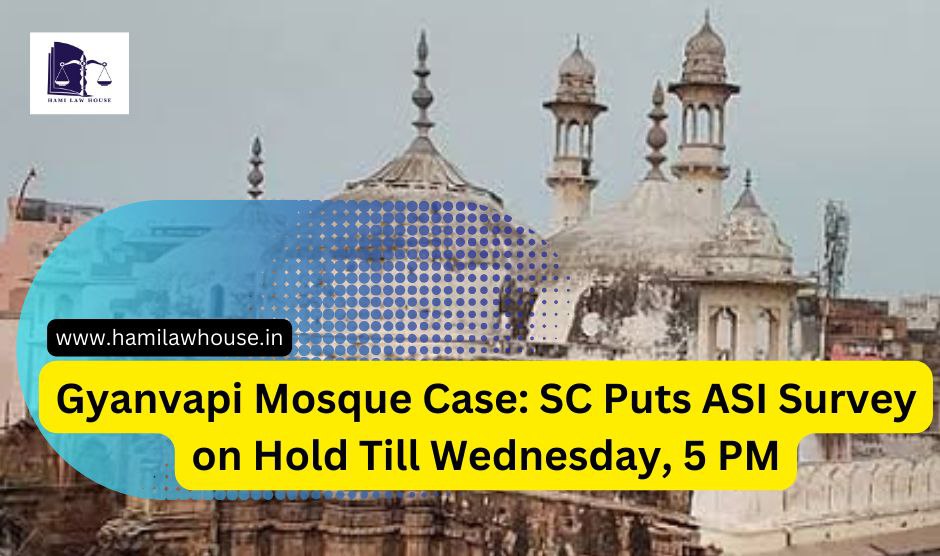New Delhi: The Gyanvapi Mosque case has recently been the subject of significant contention and legal scrutiny. The Supreme Court of India has been closely monitoring the matter to ensure a fair and just resolution. In a recent development, the apex court has taken a significant step by putting the Archaeological Survey of India (ASI) survey on hold until Wednesday at 5 PM.
The Gyanvapi Mosque, located in Varanasi, Uttar Pradesh, holds immense historical and religious significance. It stands adjacent to the revered Kashi Vishwanath Temple, a sacred Hindu pilgrimage site. The dispute revolves around the claim made by some Hindu groups that the mosque was built after demolishing a Hindu temple at the same location.
The Allahabad High Court had previously ordered the ASI to survey the mosque to determine whether there was any temple structure beneath it. The survey was seen as a crucial step in ascertaining the historical truth and resolving the long-standing dispute between the communities.
However, amidst heated arguments from both parties, the Supreme Court intervened and temporarily halted the ASI survey. The court cited the need to maintain communal harmony and avoid any potential law and order issues that could arise due to the sensitive nature of the case.
The Gyanvapi Mosque case has evoked strong emotions among various religious and cultural groups, making it essential for the judiciary to proceed with utmost caution and prudence. The apex court’s decision to pause the ASI survey aims to ensure that all parties involved have adequate time to present their arguments, and the court can thoroughly examine the implications of the survey.
The Supreme Court’s involvement, in this case, is of immense importance as it seeks to uphold the principles of justice and religious harmony. The court’s objective is to find an equitable solution that respects the rights and beliefs of all concerned parties and upholds the nation’s secular fabric.
As the matter continues to be under the Supreme Court’s scrutiny, it becomes imperative for all stakeholders to exercise restraint and respect the judicial process. The court’s decision to postpone the ASI survey underscores the significance of avoiding any actions that may escalate tensions and disrupt peace in the region.
The Gyanvapi Mosque case represents a test for India’s legal system to demonstrate its commitment to upholding the rule of law and ensuring justice for all. The apex court’s measured approach in handling this sensitive issue is a testament to the judiciary’s dedication to maintaining the country’s secular ethos while safeguarding the rights of all communities.
As the case progresses, the nation awaits the Supreme Court’s verdict, hoping for a resolution that fosters communal harmony and paves the way for peaceful coexistence among diverse religious communities. The court’s decision to resume the ASI survey on Wednesday will be a significant step in determining the future course of this historic dispute.
